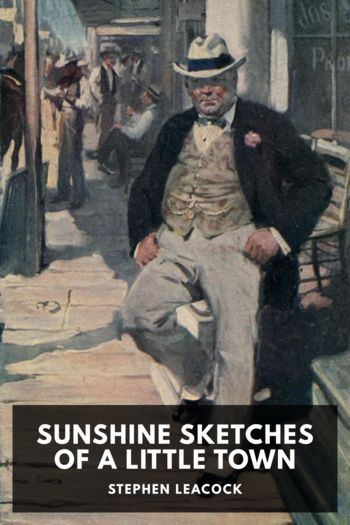Low Country, J. Jones [top 10 best books of all time .TXT] 📗

- Author: J. Jones
Book online «Low Country, J. Jones [top 10 best books of all time .TXT] 📗». Author J. Jones
It was the poorer folks like Nana’s parents who took the river ferry. A Hardee by birth, she never remembered or mentioned the ferryman, so I will have to improvise after he arrives, as we stand on the riverbanks with our coins in hand, waiting. There Charon appears, guarding this swampy bank, returning those who have pulled a golden bough off a backyard branch. Very nearly the Styx itself. Water black with its own memories. Of dinosaurs. Of the Waccamaw. Of greedy, sickly conquistadors. Of privateers, hired to build settlements by the king of an island far away, who shot a bear for food and called their first outpost Bear Bluff. Of the broken bones of redcoats tricked by Francis Marion, and the ghosts of the hurricane drowned. Is there not another river, besides this most obvious one? The river of forgetting, where spirits wait to be born again in words on pages.
We will not take the ferry, I think. The route via highway is nearly parallel, so let’s hit the road. Every two or three months, Mom packed the silver station wagon and piled us into the car for the four-hour drive from Myrtle Beach to visit her family up in Charlotte. Dad rarely came on these visits, only for the annual Christmas Day drive and sometimes not even then. Dad kissed the crowns of our heads before we hopped inside Mom’s car with coloring books and little plastic toys from McDonald’s. He’d then walk around to the driver’s side and my parents would say things too low for me to hear, though I tried hard to listen. After a kiss on her lips, he walked back into the little brown house to give either his brothers or Uncle Jack a call, and Mom backed out of the driveway with a swish of pampas grass, which is better for looking than for touching. The fronds will slit open palms and bare feet so that the sandy earth is soaked in blood before you feel the sting. Mom relaxed when we pulled away from the neighborhood, I could tell. Already I didn’t need to worry about her as much. We were soon to be with Grandpa, and I would be halfway free for a few days to be a kid with my brothers.
He raised Mom and her siblings alone after his wife chose her native country and the cool, wet metropolis of London, England, over the sticky, malarial heat of the South. They met at a dance hall in London when Grandpa was stationed near Heathrow in the Air Force, where, as an aviation engineer, his mechanical engineering skills made him too valuable to ship to the fighting in Korea. He loved to dance, for which he had little rhythm or memory for steps, but he did not shy away from looking foolish if he was having fun. May, my maternal grandmother, my English grandmother, the grandmother I met only twice, was as good as he was bad on the dance floor. He sold her and her friends contraband cigarettes that he’d smuggled from the base. His first business, really, lifting cartons of American cigarettes and selling them to English addicts still on postwar austerity. Grandpa spun her around and around that night they met until she was dizzy enough to marry him.
May was named for the month she was born, the second in a trio of cousins named for all the spring months. She stood five feet tall, but was no less glamorous for it. A redhead with memories of Hitler’s Blitz, of hiding out in the Tube tunnels and sleeping in hammocks strung over the tracks. An unexploded mortar bomb was discovered in her sister’s garden in the 1960s, and all the children, including my mom and aunts and uncle, were evacuated. Eventually May chose queen and country and rusted-out bombs to the active ones of her marriage. After a decade of isolation that led to shameful and hushed breakdowns and whispers of whirlwind affairs, taking off to take care of herself was the best she could do for her four kids. Of her infidelity, Grandpa borrowed the stiff upper lip of his in-laws. “She ran off with the milkman,” he said sometimes. He always drove me to the airport when it was time for me to return to my New York graduate school, and on predawn drives down Billy Graham Parkway, he’d remember taking May down the same road to catch her final flight to London. He’d just started a business selling gates and clocks to local businesses. Repairing the mystical hands that mark time’s passage always seemed a magical gift to me. It is not just anybody who knows how to travel through past and future, to define what is the present. He had made a deal with May. If Carolina Time, as he called his business, failed, he’d bring the kids over to England, and they’d all start over across the pond. Getting out of the car at the airport curb, instead of “Good luck with your dream” or “Thanks for watching the kids,” she looked him in the eye and said, “I hope you fail.” He marked that as the moment that drove him to succeed, but he was always going to succeed. I wondered at first upon hearing this story who would want to live without the loving kindness of my grandpa. That she





Comments (0)